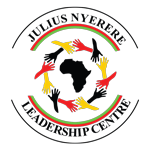#UpcomingEvent
The Afro Arab Youth Council (AAYC) 20th Anniversary 

#AAYCAnniversary20 #AAYCAnniversary2024
Theme: Youth, culture, peace and wellbeing.
Day 1 topic: Inter-generational Dialogue on the future of Young people in the African and Arab space.
Africa is a continent jam-packed with youthful energy and untapped potential, boasting of the world’s youngest population with more than 60% of the continent’s population under the age of 25. This burgeoning youth population is projected to grow even further, as Africa’s population is expected to reach 2.5 billion by 2050, up from 1.4 billion today. Notably, by 2035, there will be more young Africans entering the workforce each year than in the rest of the world combined.
The Arab region is home to more than 113 million young people between the ages of 15 and 29 — making up to 25 percent of the Arab region’s population. Adolescents and youth (10-24 years old) in the Arab region currently account for 27 percent of the total population.
With such a young population across the Afro-Arab region, youth can be rallied along the development agenda of communities as agents of change, who have the potential to build a more prosperous and resilient future for themselves and their communities.
The large presence of youth in Afro-Arab region is critical to the region’s economic, social, and cultural development. Unleashing this potential requires urgent and conscious conversations across the generations to create opportunities for meaningful learning, social engagement and work opportunities, all of which are currently limited.
It is also projected that within the next decade an estimated 40 million more youth in Africa will face an uncertain future without work and life skills. This will impair their ability to get good jobs in desirable occupations, resulting in low and unstable incomes while exposing them to potentially long periods of unemployment. This leads to a vicious cycle of poverty, poor health and disempowerment among others. Unemployment within the present youth generation will also be felt by the next generation, since these youths’ poor economic outcomes will hurt their ability to provide favourable opportunities for their own children.
Societies at large will feel the impact: economic growth will be constrained, limiting the revenue-raising capacity of governments, while the need for public expenditures to support these youth, will expand.
Young people, being most demonstrative about their economic and social situation and problems such as inequality, high joblessness and lack of opportunities may resort to criminal activities resulting in social unrest.
This calls for governments to tackle youth unemployment with a combined set of policies through review of all options that policymakers, employers, trade unions, youth organizations and young people themselves can pursue.
It is imperative that efforts are undertaken from all dimensions: from education to apprenticeships and internships; from job-search counselling to first-time jobs; from youth entrepreneurship to reforms in social, employment, education and other policies.
Young women are particularly constrained and face a myriad of challenges from gender based violence to biased laws and norms that prevent them from owning property, working and even making decisions about their own lives. All relevant measures must therefore be pursued as a package and not in isolation to ensure inclusivity.
The intergenerational dialogue is one of the ways envisaged of improving the contact between youth and key policy makers, in order to achieve understanding and solidarity between them.
Reflections on questions like; what do all generations want; A better future, without compromising the present in matters pertaining to peace and wellbeing, while riding on the unifying factor of culture?
The dialogue should incite reflections as to the challenges and prospects of intergenerational solidarity on key issues of interest in the African and Arab space. Focusing on the need to re-balance the ideological orientation of young people, wellbeing in its broad sense, the Peace dividend and the role of culture in aiding co-existence, and general wellbeing of Youth for sustainable development.
Insightful considerations on:
- How can we fulfill the needs of today without compromising the potential of tomorrow?
- The notion that many of the concerns of the old and young are similar ; except that caution should be taken to allow autonomy to flourish within solidarity(peaceful co-existence).
We are all future generations, from the oldest of us to the youngest, living tomorrow must mean that we all have a care to make sure that the future will turn out better than today. Human progress, development and growth (in the wider sense) have improved the lives of billions of people over time, increasingly however in recent years this progress has made the lives of those on the edges of society worse .
Objectives of the intergenerational dialogue
- To provide a platform for the voices of young people to be heard by decision-makers at the highest level.
- To promote an attitude where challenges are seen as opportunities, instead of focusing on the negative consequences that might appear.
- Creating spaces for reflection, listening and exchange of ideas between young people, Government, global and continental leaders and other policy makers and stakeholders on issues that concern the youth, including how to achieve the demographic dividend and realize Agenda 2063 and the SDGs.
- Discuss how to ensure the relevance and greater implementation of the African Youth Charter within countries
- Encourage young people to analyze matters of local policy, guaranteeing their participation at the decision processes with a creative attitude.
Overall Purpose
The intergenerational dialogue aims at creating the space for dialogue that is necessary to develop transformative strategies and perspectives on maximizing the development potentials of youth.
The dialogue will be through engagement of ministers of Youth, Governments, continental and global leaders of key institutions with key youth constituencies including university students, National Youth Councils, social justice actors, African diaspora and media among others.
The event is expected to galvanize these youth as they engage with the leaders thus making it a truly intergenerational dialogue. The dialogue will build upon achievements from the 18th AAYC anniversary dialogue whose key recommendations were centred on implementation of existing policies and strategies that hinge on education, governance, peace and security, health and economic empowerment.
The event will bring together the following participants;
- Policy makers, researchers, academia, and youth activists.
- Heads of key continental and global institutions
- Pan African Youth Union (PYU) & National Youth Councils
- Continental Youth Organizations
- Foundations and Private Sector Partners
- Selected Youth from Partner Institutions
- University student Leaders
- African Union Youth Volunteers
- Self-sponsored youth representing specific thematic areas
Format
It is a one day dialogue. The youth will engage in a structured conversation with the high level leaders on the theme and agree on key priorities that will then inform subsequent policy advocacy campaigns.
The format for the intergenerational dialogue with the leaders will be a moderated panel discussion between youth delegates, continental leaders, international youth leaders, and the iconic leaders from across the globe.
Expected Outcomes
· Enhanced interaction and communication between young people and decision makers including the opportunity to share key messages with Governments and international/continental bodies
· Endorsed set of actions, including clear commitments, to be taken throughout 2024 by Governments, heads of continental and global institutions and young people.
· Communication opportunities are offered, linkages are strengthened and gaps reduced between generations;
· Areas of priority towards the realization of the objectives set in theme of the year 2024 are agreed upon.

